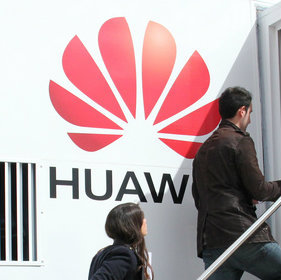A Reuters report uncovers documents that establish close links between Huawei and companies that breached US sanctions through deals in the Middle East.

Huawei was closely involved with firms that breached US sanctions by doing business in Iran, according to court filings and other documents that Reuters claims to have unearthed.
The revelation follows the recent arrest in Canada of Meng Wanzhou, the Chinese vendor's chief financial officer, who stands accused of covering up links between Huawei Technologies Co. Ltd. and Skycom, a network equipment vendor that did business in Iran. (See China Slams Huawei CFO's Arrest, Huawei 'Not Aware of Any Wrongdoing'.)
While Huawei has downplayed the connection with Skycom, insisting it was merely a business partner, US authorities claim it was under Huawei's control. Meng, who remains in Vancouver on bail, is facing extradition to the US, which claims she lied to US banks about the relationship between Huawei and Skycom. (See Huawei CFO Posts Bail in Canada.)
According to the latest report from Reuters, documents found in Iran and Syria show that a high-ranking Huawei executive managed Skycom's business in Iran. They also indicate three individuals with Chinese names had "signing rights" for both Huawei and Skycom bank accounts in Iran.
Another company called Canicula, based in Mauritius, appears to have carried out work for Huawei in Syria, said Reuters in its report, citing a Middle Eastern lawyer called Osama Karawani as the source of that information.
Records filed in Hong Kong, where Skycom was registered, show that Canicula has been Skycom's holding company since 2007, when shares in Skycom were transferred to it by Huawei, Reuters reports. Meng allegedly told a US bank executive that Huawei had sold its shares in Skycom in 2009.
The US case against Meng alleges that her deception led US banks to unwittingly clear Huawei transactions worth hundreds of millions of dollars, violating the sanctions against business dealings in Iran.
US sanctions forbid the sale of US products to blacklisted countries including Iran and Syria. Huawei is understood to rely on components made by US companies in some of its network products, although it appears far less reliant than ZTE Corp. (Shenzhen: 000063; Hong Kong: 0763), its smaller Chinese rival, on US component suppliers.
ZTE was last year banned from acquiring any US components after it was found to have breached sanctions against Iran and North Korea and then lied about making improvements to its organization. The ban, lifted after ZTE agreed to pay a hefty fine, nearly drove the Chinese company out of business. (See Amid the rubble of L'Aquila, ZTE tries to rebuild.)
According to previous Reuters reports, which are apparently being used in the case against Meng, Skycom in 2010 offered to sell Hewlett-Packard computers worth €1.3 million ($1.5 million, at today's exchange rate) to Iran's biggest mobile operator. Pages of the Skycom proposal featured Huawei's logo, said Reuters.
For all the latest news from the wireless networking and services sector, check out our dedicated mobile content channel here on Light Reading.
In other revelations, the Skycom manager in Iran identified as a Huawei executive has been named as Shi Yaohong. He was, according to a LinkedIn profile, appointed as president of Huawei's Middle East business in June 2012. Today, he is president of the vendor's software business.
Shi is reported to have hung up the phone when Reuters called him for a comment.
Skycom appears to have been liquidated in 2017, with Canicula receiving about $132,000 as part of that process, according to records in Hong Kong.
In Syria, Reuters tracked down a letter written by Osama Karawani, a Middle Eastern lawyer, to business website Aliqtisadi.com. In May 2014, Aliqtisadi.com published an article saying that a Huawei business selling automated teller machine equipment had been liquidated. Karawani took issue with the story. "Huawei was never dissolved," he says in his letter, according to Reuters. It "has been and is still operating in Syria through several companies which are Huawei Technologies Ltd and Canicula Holdings Ltd."
Canicula had an office in Syria until two years ago, said a Reuters source, and its customers included MTN Syria, a subsidiary of the South African telecom giant MTN.
Besides the arrest of its CFO, Huawei has also faced mounting security concerns in Western markets, with critics arguing that Chinese authorities could use its networks for spying. Authorities in Australia and New Zealand have moved to exclude Huawei and ZTE from their 5G markets, while the US government has warned major service providers off dealing with Huawei since 2012. (See Where Huawei Fears to Tread, How the West Can Hurt Huawei, New Zealand blocks Huawei from 5G deal with Spark and Australia Excludes Huawei, ZTE From 5G Rollouts.)
In Europe, the UK's BT Group plc (NYSE: BT; London: BTA) is stripping Huawei kit out of various parts of its network. Meanwhile, France's Orange (NYSE: FTE) has indicated it will not buy any 5G equipment from Huawei in its domestic market. (See Orange Rules Out Huawei for 5G in France and Huawei Cut Out of BT's Mobile Core, Optical & Edge Plans.)
Huawei declined to comment on the Reuters report when approached by Light Reading.
— Iain Morris, International Editor, Light Reading
About the Author(s)
You May Also Like











